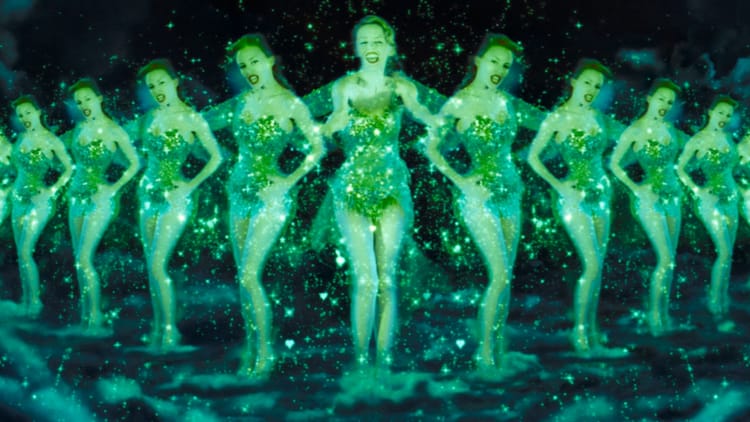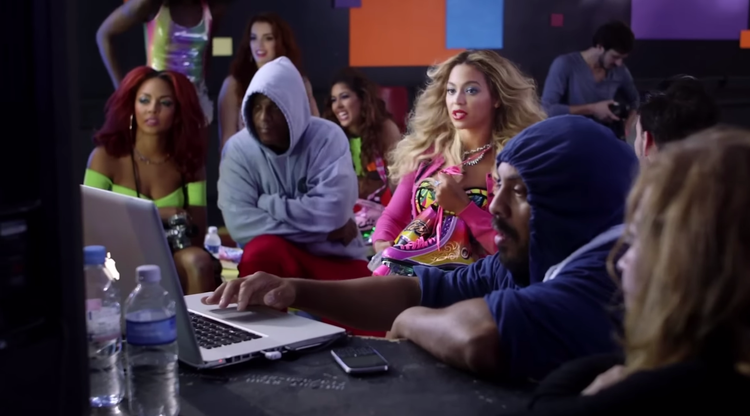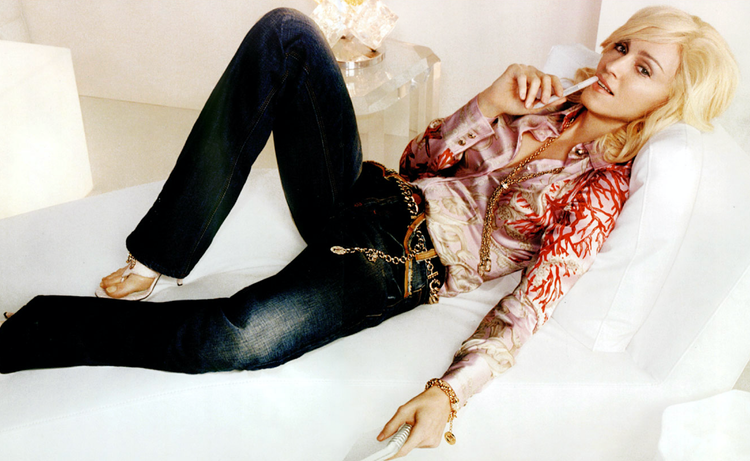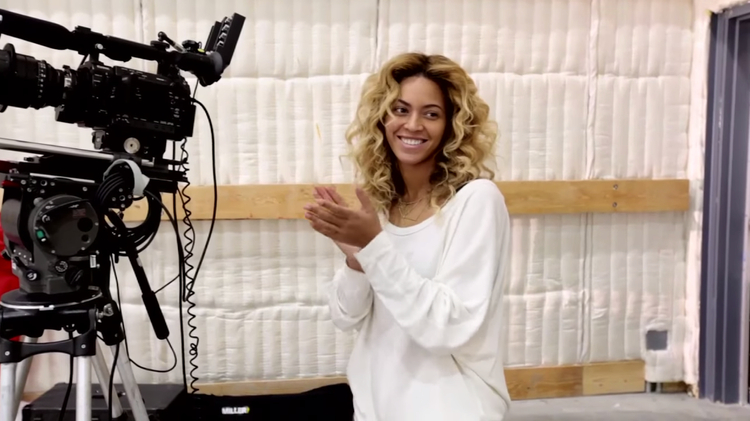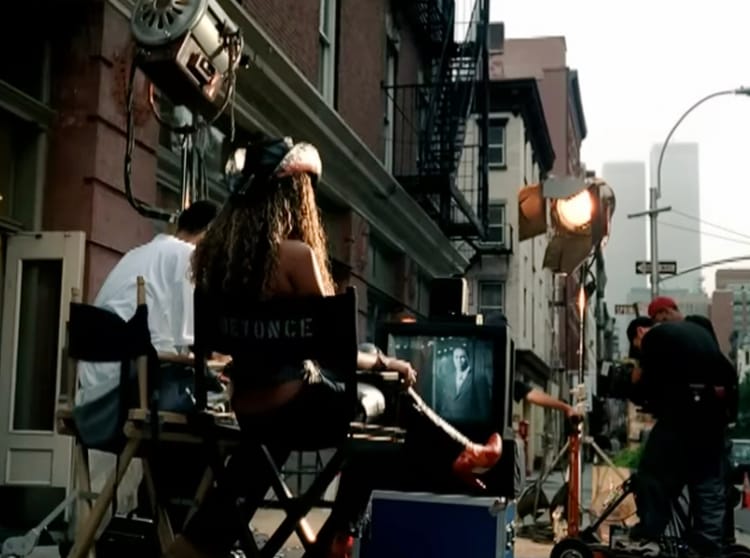AMA no. 1
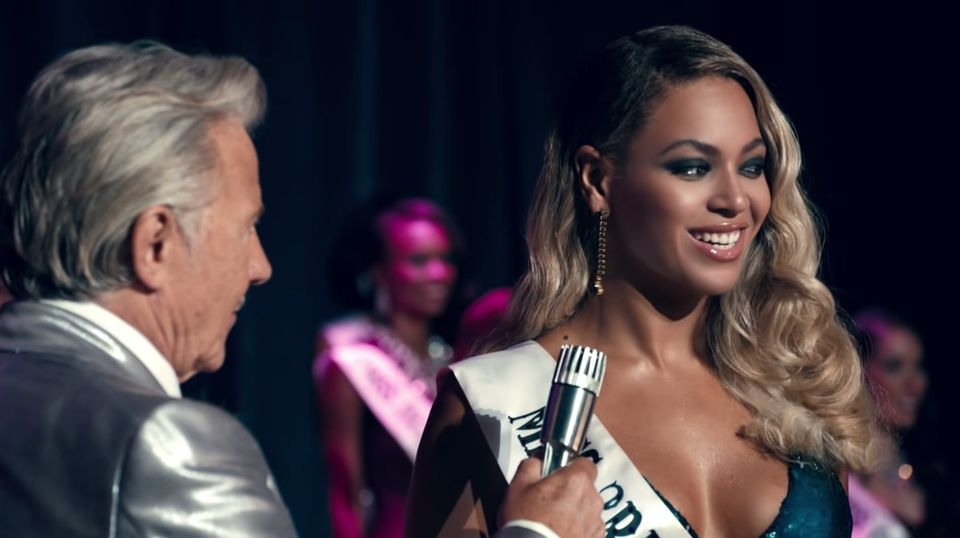
Mononym Mythology turns six months old relatively soon (on December 11, to be exact), and I figure that now’s as good a time as any to do my first “ask me anything” session. I got way more questions (via email and social media) than I expected, but I’ve answered as many as possible, and grouped some of the similar ones together. Thanks so much for being here, and here’s to the next six months! 🥰
What got you into writing about music? Was there a specific pop diva or album that inspired you?
I have to be annoying for a second and insist that I don’t write about music so much as I do music videos (and other visual stuff associated with pop artists—the films they make and star in, the ads they get paid to be in, sometimes the clothes they wear, and so on). That distinction’s important to me because I love and read a lot of music criticism in the traditional sense, and I don’t think that’s what I write. Also, I have two film studies degrees, my background is in writing and editing film criticism, I filed two film reviews this week, etc. I very much think of myself as a film critic who writes about music videos a lot of the time. To me, they’re the exact same skills, and as I’ve written about here before, it’s increasingly hard to separate the two formats anyway. I’ll definitely get into the odd lyric or instrument or whatever in my writing from time to time, but I’m generally doing it on my way to make an argument about a particular visual, and I actually consider myself to be pretty useless without a visual of some kind. I of course love music even when there are no visuals involved, but I don’t think I have a single reader who’s here for my thoughts on music by itself. Is that fair? I promise that it’s relevant to my answer to this question, which is: I’d been both a movie person and a music video person forever, but Beyoncé’s Lemonade coming out in the latter half of my undergrad jumbled the two together in a way that kind of unlocked something in my brain, and the rest is history. There’s a longer version of this answer here, in my inaugural Mononym Mythology instalment.
What writers/authors/essayists/etc. have made you a better writer?
The person whose work has had the greatest influence on my own is Anne Helen Petersen, period. I can trace so many things back to her—my propensity for over-researching, my comfort with trying to make a smart argument about something not everyone considers smart, my openness to feedback and criticism, etc. Her earlier BuzzFeed pieces (like this one) have had an enormous impact on me, and especially how I consider extratextual material when I write about a music video. The same goes for Alessa Dominguez, who still writes for BuzzFeed and also writes about pop divas a lot of the time. Both are former academics, and that’s for sure a huge part of why I’m drawn to them. Otherwise, I basically just keep tabs on smart people who write smart things about pop culture: Michael Blackmon, Niela Orr, Jia Tolentino, Doreen St. Félix, Carrie Battan, Angelica Jade Bastién, Ivie Ani. I’m for sure forgetting someone that I shouldn’t be forgetting, but definitely look all of these people up.
Do you see any possible correlation between your discussion of pop divas and other big name performers from other genres? What role do you attribute the pop genre to the discussion vs. a rock star like Mick Jagger or even female rock stars like The Runaways?
If I learned anything writing my thesis this year—which, to catch anyone up, was about Jonas Åkerlund’s work—it was that there’s very little difference between a so-called pop diva and any other kind of big-name performer, if we’re talking about the work or artistry itself. A Beyoncé show and a Rammstein show and a Stones show (these are all Åkerlund clients, which is why I’m using them as examples) are more similar than they are different. They all write and compose music in a studio, and make visuals to go along with that music (sometimes even with the same collaborators), and tour that music in stadiums with big pyrotechnic displays, and have millions of people that sob in their presence, etc. The only real difference is that one of these acts tends to be feminized while the others aren’t. So, my answer to this question is: yes, just about everything translates from one sphere to the other. I could give a longer answer where I argue that genre doesn’t mean all that much anymore—not in a world where, if we’re talking about The Runaways, Joan Jett is featured on Miley Cyrus’s forthcoming album, which is a rock album (and which comes with a The Runaways-esque Dua Lipa collaboration). Mick Jagger has performed with Lady Gaga and Christina Aguilera. It’s hard to listen to “Don’t Hurt Yourself” or watch this video and not think that Beyoncé’s a rock star in addition to anything else. And so on.
What is your favorite thing about writing? What is your least favorite thing about writing?
I have several favourite things. One is the challenge of turning a mess of bulleted facts and dates and names and quotations into something resembling sentences; it’s akin to doing a puzzle, I find. Another is going through my own first draft with a chainsaw and humbling myself as I self-edit. I also genuinely love being edited by others. And I also love being read. Some people are like, “I write just to write, I don’t need to be read,” and that’s extremely noble of them but I don’t relate at all, sorry! My least favourite thing about writing is the long list of nightmare things you have to do now to be a mildly successful writer that aren’t actually writing: having a social media presence and constantly feeling your brain leak out of your ears, being ignored by editors and interview subjects over email, explaining what you do to someone who’s never used the internet, etc. Every writer’s life is a constant battle between the first half of this answer and the second half.
Whose public persona seems the most hard to capture in writing and why?
So far, Lana Del Rey and M.I.A. have been the artists that I’ve found the trickiest to write about. They’re both quite outspoken and in ways that often complicate the work itself, so you’ll go to write one thing but then a particular lyric or interview will throw you off. Otherwise, I think Lady Gaga’s post-Joanne persona is pretty challenging, even if I’ve still been able to write about it, because the line between where Stefani Germanotta ends and Lady Gaga begins is blurrier than it ever has been. I strongly believe, for example, that the whole A Star Is Born chapter was a sort of extended performance art piece, but a lot of people assumed that that was Stefani—even though the red carpet is historically where Lady Gaga has done some of her best work. She was styled like a studio-era starlet for every single red carpet appearance, and did a lot of things that recalled that same era of Hollywood stardom—repeating the same thing in every interview, wanting people to believe that she and Bradley Cooper were really in love while they promoted the film, etc. Her persona is hard because it’s almost impossible to untangle the two women, and probably intentionally so.
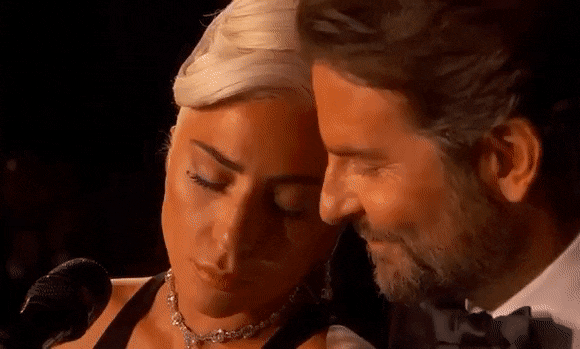
What is an area of (or person in) pop culture you want to learn more about? What's something you'd prefer to never look into?
I’d love to be more well-versed in K-pop, and I have plans to go back through the careers of Prince, David Bowie, Christina Aguilera (this is technically in progress), and Cher (again, technically in progress) next. I don’t think there’s anything I’d prefer to never look into, necessarily. Michael Jackson is someone whose career I’d definitely benefit creatively and professionally from being fluent in, and yet he’s sort of fallen to the bottom of my priority list after the last few years. I don’t think I can really freelance write my way through that one the way I can with the others.
One Direction? Yes?
I saw them live twice in high school, so… yes. In terms of their respective solo careers, I quite liked Zayn’s dEbUt AlBuM but honestly haven’t paid much attention to him since, at least musically. (I know that he recently became a dad.) I also think Harry will be around for decades, and I’d love to give him and his ruffles his own Mononym Mythology instalment at some point soon.
What inspired you to pursue an MA in Cinema Studies?
Several things. My 9-5 prospects aren’t fantastic because I have health problems, so I was to a large extent trying to set myself up to be a more attractive work-from-home candidate. I’ve also always wanted to teach, and it was an opportunity to both start doing that and set myself up to keep doing that later. I’ve also always kind of lived for school, not to overwhelm you with coolness. I also just wanted a respected institution to sign off on me being very on my bullshit. I can say things like, “But how low-brow is it really if I attended an institute?”
When you decide you're going to research a topic or subject, where is the first place you start? What’s your ritual on a research day?
Wikipedia! I won’t lie. You obviously have to take everything on there with a grain of salt, but it’s a great way to get a sense of a particular narrative arc. Plus, the people I write about tend to have pretty devoted fans who’ve logged as much as they can about them on there, sometimes including sources that aren’t linked anywhere else on the internet. After that, though, I’ll search whatever I’m writing about in Google and read about 10 pages’ worth of results. (If I’m writing something more academic, I’ll do the same with my university library, except maybe not 10 pages.) I like to know what’s out there already so that I can figure out what’s different about my project. And sometimes the search results become the whole hook, like: “The relationship was and remains off the record enough that Fincher doesn’t tend to appear in the listicles chronicling Madonna’s impressive love life as a public figure.” Occasionally, I’ll read an entire book, but only occasionally. As for my ritual on a research day, they’re all kind of research days. I read constantly as I write—partly for procrastination reasons, but, in a kind of sick way, I’m also waiting to stumble across something that’ll throw off my whole argument… or force me to make it stronger.
You discussed [on Instagram Live the other day with Like a Love Story author Abdi Nazemian that] you think Beyoncé is a better successor to Madonna than Lady Gaga and I was wondering if the obsession with personas plays a role there. No doubt Gaga is also very into maintaining her persona but I also think Gaga’s persona is one that is at least designed to make her seem more approachable vs. Beyoncé and Madonna, who don’t give me the same vibe.
For me, it’s less a persona thing—I don’t think that Madonna and Beyoncé are all that linked, persona-wise—and more that people spent a decade so focused on Lady Gaga being a Madonna copycat (or whatever) that they missed Beyoncé making three times as many Madonna references in her work. And I think those latter references are extremely valuable for understanding what Beyoncé was looking to achieve with her self-titled era, and the sort of control that she envisioned having over her projects thereafter. (As I mentioned during the Live session, Beyoncé herself once drew a line between Madonna’s Maverick and her own Parkwood Entertainment.) Gaga is obviously indebted to Madonna in many ways (they all are), and she’s obviously (and openly!) been influenced by Madonna artistically, but I don’t think the two women play the same role in the cultural landscape in terms of dominance and perhaps even longevity. (This latter part could change, but what I’m saying is that Beyoncé already has a whole decade on Gaga, and we’ll have to see what Gaga does with the next decade.) Regarding the whole persona thing, Gaga’s persona seems like an approachable one these days, but I’d argue (and have argued, actually) that she initially used her out-there persona to keep some distance between herself and the public. Madonna’s persona is unapproachable to an extent, but I think that many people have read that unapproachability as bitchiness when it was supposed to be read as ironic. Beyoncé is a private person, so she might be unapproachable in a more literal sense, but the idea that she’s a cold or overly serious or unkind person is largely projection, if we’re looking at the actual evidence. She’s one of our silliest pop divas, and apparently on the quieter, shier side when she’s off-duty; she just likes to hide from people.
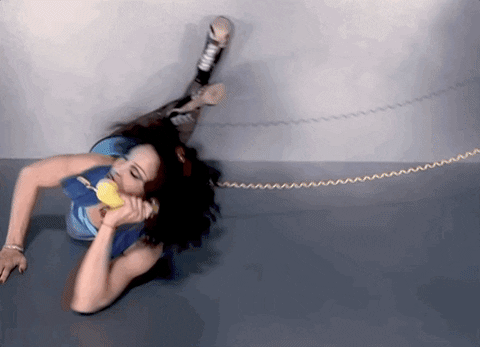
How do you balance your work/personal life? Or are they more one and the same?
They’re more tangled than I’d like them to be, which I guess is par for the course for freelancers (and for this calendar year, arguably). I also genuinely enjoy this stuff and truly like having things to work on, so I don’t tend to be bothered by it too often. The only thing that really throws the balance off in a way I don’t enjoy is Twitter, so setting boundaries there is a life-saver, as is living with someone who doesn’t work in the same field and couldn’t care less about that Terrible, Horrible, No Good, Very Bad app.
Any music video faves of 2020?
The ones I’ve come back to the most this year are probably the Weeknd’s “Blinding Lights,” Christine and the Queens’s “La vita nuova,” and practically everything that Megan Thee Stallion has released this year (“Don’t Stop” is for some reason my fave). I wish Beyoncé’s Black Is King were accessible somewhere outside of Disney+ so that more people would/could see it. While “911” is probably a stronger video, Gaga’s “Stupid Love” took me back to the Born This Way era in a way that I really needed in February. I also love everything that Chloe x Halle have done this year, and would argue that their quarantine performances are classifiable as music videos.
How do you handle critiques of your work? And how do you separate opinion from actual feedback to help you grow?
I try my best to look at where that criticism is coming from, and go from there. It’s very case-specific. If I’m being given feedback by an editor, then I want it, and I think that being open to editing is one of the best things I’ve done for myself as a writer. But I can give you two real examples from the last little while where I’ve had to be like, “Okay, no.” When I was interviewing Abdi on Instagram Live, which was already kind of stressful because you’re trying to be conversational while also remembering what your next question is (while also realizing that you look kind of tired because you haven’t had any coffee that day because you couldn’t risk aggravating your chronic digestive illness), I said something about Beyoncé and someone was trying to correct me in the comments about a particular date. And I wasn’t going to interrupt the conversation to say this, but that someone was wrong, and I hated the thought that someone else reading the comments might think that they were right, and similarly question my expertise. But at some point, you just have to remember that you know what you’re talking about (which can co-exist with always having things to learn), and that that’s why you’re the one doing the IG Live. Somewhat differently, someone left me tagged on Twitter the other day to comment that my Madonna/Fincher piece was “ripe with silly moralism,” and like, maybe! But thousands of other people quite enjoyed the piece, so perhaps my writing just isn’t right for this one person.
How do you psych yourself up for a chat with someone you admire in media?
I’m honestly never not terrified. The only thing I can really do for myself is be prepared (but not too prepared because that tends to make me more nervous, and I never find that I get to ask all my questions anyway). If I’m lucky enough to get to chat with someone cool, I’ll frankly spend the three hours ahead of then pacing/talking to myself/in the bathroom. Pretty cool, if you ask me.
If you had the opportunity to ask Beyoncé any question, and assuming she would have to answer and answer honestly, what would it be?
Beyoncé’s an interesting person to read and write about precisely because you don’t have her honest answers to your questions. Some of my best writing—about her, but also other artists—has arguably come from me speculating based on available facts, and I think that she’s set her life up so that speculation is basically all we have. (If you’re looking to understand her career, this is one of the most important Beyoncé quotes in existence.) For example, she’s had a bumpier year than usual in terms of critical reception, and while on some level I’d be interested to hear how she’s felt about that, I’d personally rather just see what she does next to try and rebound from it. Same goes for what she’s working on now. Same goes for what she’s been reading and watching and otherwise artistically ingesting in the year 2020, since that will pop up in whatever she releases next. Sorry if this is a terrible answer. I only really have timeline questions for Beyoncé, ones related to Jay-Z being terrible and perhaps her miscarriages. I have my own theories regarding those things, and certain readings of certain projects are arguably dependent on when certain things happened, but it’s ultimately not any of my/our business. And again, not knowing the answers here begets richer writing and conversations about the work.
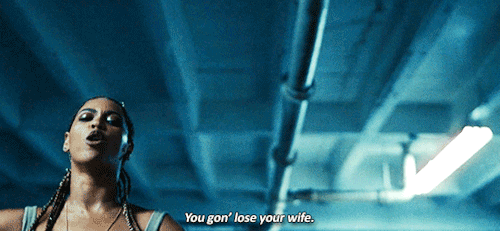
Is there a music video that you think handles product integration/advertising well? Or is it kind of universally always jarring/takes you out of the video? I think I was wondering this in relation to the notifications tab on Instagram changing to a shopping tab. I'm not sure if the two thoughts are neatly related to one another, just something I was thinking about... something something about how all modes of artistic expression eventually turn into a way to sell a product, etc. I guess more largely, your thoughts on advertisements in MVs!
Putting aside the obvious fact that all music videos are technically advertising something even when there’s no actual product placement—the artist is still a product, is what I’m saying—I tend to find it off-putting. The only real exception is when there’s something satirical happening, like in Lady Gaga and Beyoncé’s “Telephone.” I don’t know if Wonder Bread or Plenty of Fish or any of the brands that make appearances in that video knew that they were being used to commentate on the darker side of American consumer culture, but it’s interesting to think that they saw it when it was finished and were like, “Wait.”
How did you choose Substack as your writing platform?
I had plans to launch a newsletter a whole year before I actually launched this one, but I was subscribed to a bunch of Substacks and loved how user-friendly and attractive everything was, especially as compared to other equivalent platforms. I also like that it’s monetizable, which I’ll elaborate on in a second.
Do you think you’ll ever monetize your Substack?
The short answer is yes. A longer answer is that I probably won’t do so until I hit 1000 subscribers, which isn’t projected to happen until next year at some point, and even then there will almost certainly be a free component. Right now, I really enjoy that my work can find its way into anyone’s hands, and I’m not looking to prevent anyone from reading it. But I do put so much work into these and generally speaking believe that I should be paid for that work. For now, there’s always my Ko-fi page.
How has your experience as an EIC shaped your writing?
Understanding the other side of the writing-editing equation relatively early in my freelance career was huge for me. It’s why I don’t file anything that I haven’t already self-edited to hell, why I’m pretty good at not sending follow-up emails prematurely, why I hate when bad takes go viral on Twitter and it’s clearly because the editor threw the writer under the bus, etc. Once you’ve been the editor who’s concerned about the inflammatory take that’s not sufficiently backed up or who’s had to edit several dad jokes out of a piece, you’re a lot less likely to try and inflict that stuff on another editor. But it’s also great for, like, me knowing that there are a dozen reasons why my pitch may not have been accepted that aren’t just “this pitch sucked.”
80s horror movies—are you a fan? What’s your favourite?
Totally, and my favourite’s most definitely John Carpenter’s The Fog!
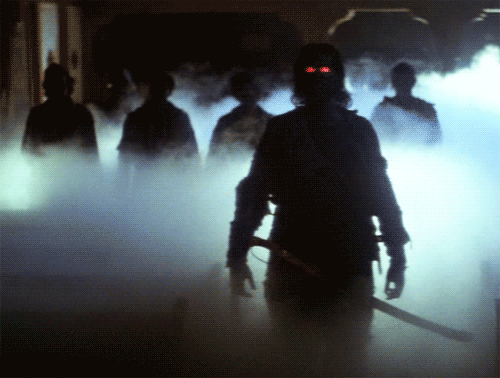
Who do you find most interesting in the current pop scene and why? Who do you think is going to become more interesting in the next few years?
Aside from my obvious answers, Harry Styles, Dua Lipa, Chloe x Halle, Rina Sawayama, Normani, Megan Thee Stallion, and Billie Eilish are all on my radar and all feel worth paying attention to, in my opinion. I also think that the Weeknd, established as he is, has just entered a new, more theatrical and perhaps daring phase of his career. (I’m so mad about the Grammys thing.) Same goes for Miley Cyrus, since I think she’s always been at her best when she’s yelling.
Does your writing tend to represent your actual tastes, or more so what you find interesting to think and write about analytically?
There’s certainly a ton of overlap, but I try to make sure that the latter is the priority. I listen to so much music that’s not pop, and so much music by artists who don’t make/never made music videos. I won’t name them but there are also a few artists I cover simply because they’re on my beat, as opposed to me being personally invested in them. I actually think that I write best about the artists I am personally invested in, but that’s likely because I actively don’t let myself fangirl. I might be more generous with those subjects than other writers are, but I’m never uncritical.
I’m curious how you manage your chronic illness alongside your writing and day-to-day errands. I’ve followed you for a while now and have never noticed you mention it before! I know you mentioned it in relation to Madonna, but that was the first time I picked up on it. I’m also wondering how you manage it because your pieces seem so tirelessly researched!
Thank you! I have a lot on my side in terms of management, since I’m Canadian and financially stable and don’t live by myself. But it’s honestly quite difficult even then, and I don’t exactly live-tweet my worst days, so you might not get a sense of how much being chronically ill defines my day-to-day existence just from following me online. When it comes to work, I’m always making compromises here and there, whether it’s asking an editor for a bit more time (which I hate doing) or moving my self-publishing schedule around to accommodate how I’m feeling. (This AMA session is actually replacing the anniversary piece that I’d intended to send out last week, which I regret not being able to send out. I hadn’t taken two or three weekends off in a row and I really needed the week off.) Because I’m already someone who loves lists and schedules, I also have non-negotiable things that I try to do every day in terms of self-care. And that’s essentially me controlling what I can to make up for the big thing that I can’t control. There are obviously days that I don’t end up doing those supposedly non-negotiable things, but I tend to pay for those later, so I try to remember that.
Do you think it’s feasible to pursue a career in the arts now, for the average person, or does the “struggling artist” stereotype ring true? Do you think that a freelance career is more accommodating of chronic illnesses as it’s more or less self-directed, or does the flexibility and unpredictability make it in some ways harder?
These are such big questions and I don’t know whether I can satisfyingly answer them. Online media is so broken and the whole struggling artist thing does ring pretty true, at least among my cohort of culture writers. But way more writers than you’d ever guess are paying their bills through a form of income that’s not listed in their Twitter bio. So many have 9-5 jobs that they work to subsidize the freelance writing, which is the work they’d love to do full-time one day. So many have partners and/or families financing things behind-the-scenes. As for the chronic illness question, I find that freelancing is easier for me personally, and I know that a lot of other freelancers freelance because they can’t comfortably work 9-5 jobs, but I’m sure that there are lots of people who feel the exact opposite. The flexibility is the entire draw for me; I could do without the unpredictability, but it’s sort of a concession I’m happy to make so that I have the flexibility.
What is one thing about Madonna that you were most surprised to learn about? And what's a misconception society has about her that you want to debunk?
I did a poor job of explaining this on Instagram Live the other day, so I’ll take this opportunity to say: as someone who wasn’t alive yet when Madonna’s Sex book came out in 1992, it’s for sure the thing that most surprised me as I was going back through her life and career. In terms of both sexual explicitness and risk-tasking, I’d argue that it’s as-yet unmatched by any mainstream artist today. One of the reasons it surprised me is that you don’t really hear it mentioned or referenced by people outside of her fanbase. I’m not sure if that’s because the book is no longer in print (it comes up when you Google it, by the way) or because there’s this sort of collective amnesia regarding the shit Madonna went through so that her successors wouldn’t have to, but yeah. It’s been almost 30 years since it came out and it’s still a jaw-dropping project, especially coming from one of the most famous people in the world. A very specific Madonna myth that I’d like to debunk, but one that I’ve seen come up several times since my Madonna-Fincher piece went out, is that Fincher made Madonna’s career or was in any way responsible for her fashioning herself as a classic(al) Hollywood star. Their videos together are certainly iconic, but all evidence suggests that they were collaborations between both parties—ones that started six or so years into an already wildly successful career. As I actually mention in my essay, Fincher insisting that Madonna release “Oh Father” as a single (so that he could make a video for it) killed what would have been a streak of 18 consecutive top-ten singles. Also, prior to them ever meeting, Madonna had already made multiple videos where she’d pulled from past Hollywood and musical eras: “Material Girl,” “True Blue,” “Open Your Heart.” Fincher was likely the one who brought Citizen Kane to the table, but Metropolis and each of the people she names during “Vogue” (which influenced the video enormously) came from her.
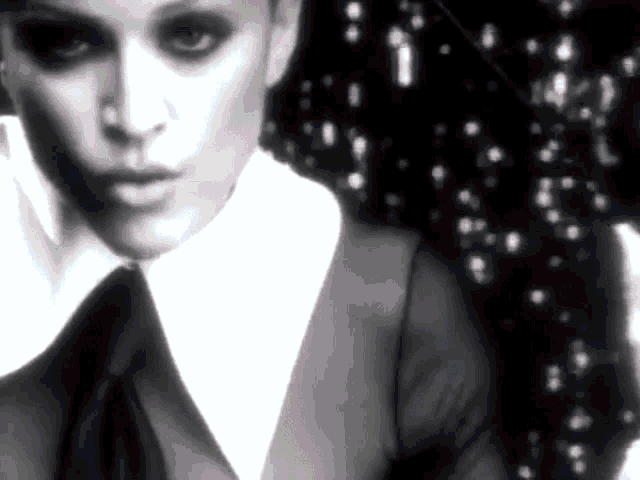
When examining Madonna, Lady Gaga, Beyoncé, Lana Del Rey, what are some similar obstacles they've all faced? And what are some things that they've done that you've found most inspiring? When I look at these women in particular, I find that their openness about sex and body autonomy were most impactful on me. Especially since they all faced backlash for owning their sexuality. Beyonce, one of the most powerful women ever, still gets shamed for a song about having sex with her husband. How are the rest of us supposed to survive?
I often joke that the thematic holy trinity of pop divahood is: horniness, daddy issues, and God. But it’s not entirely a joke and I can actually use it to answer this question. One, each of the women you’ve named has faced blatant sexism and misogyny, and this has very often come out when they’ve made art that’s supposedly too sexually provocative or empowered. These are some of the projects I’ve found most inspiring—Madonna’s Erotica, Britney’s In the Zone, Gaga’s ARTPOP, Beyoncé’s BEYONCÉ, etc. Of course, the particular brand of misogyny that Beyoncé faces can’t be divorced from her Blackness. Two, pop diva fathers tend to be pieces of shit for some reason; I have no idea why, but it holds up for 99% of them. For example, as Gaga was campaigning for Joe Biden and Trump was making disparaging comments about her at some rally, Joe Germanotta was on Twitter posting pro-Trump things. Mathew Knowles’s shenanigans are an entire newsletter instalment, and it was when Beyoncé fired him as her manager that she started to put out my favourite work of hers: 4, BEYONCÉ, Lemonade, etc. And three, these artists often come from religious backgrounds, which hasn’t necessarily been an obstacle for all, but it has been huge for some (e.g. Whitney Houston). Lana obviously exists on the same tree as the others you’ve named, but I think she’s a completely different kind of artist with completely different goals related to feminism and whatnot. I’m actually not sure whether she knows what they are.
Do you ever find that your research isn’t taken seriously in academia?
I was concerned going into my program that it wouldn’t be, but I never had any issues. I have no sense of what a different program or university would have been like. I may have felt a lot less confident had I not immediately connected with multiple faculty members who are also interested in and/or actually studying music videos. I also never once felt while writing my thesis that my supervisor didn’t take my research or interests seriously, and that helped a lot.
How has grad school informed your writing/thinking/way of living?
I’m only out of it as of the beginning of September, and I honestly feel like it’s still too close to then to be able to fully tell. My brain also didn’t really work again until mid-October. I sat so stupidly while writing my thesis this summer—I’m prone to leg-crossing and even owling, weirdly—that I damaged a nerve behind my knee, and have been living with constant nerve pain (felt mostly in my foot) since August. It’s expected to resolve itself, but that might not happen for at least half a year, and one neurologist was careful to not guarantee that it will go away. So that’s currently how it’s informing my way of living (and thinking—I spent the three months waiting for my neurology appointment assuming I had something much worse; I don’t recommend it). This is so not the answer you were looking for, but there are obviously good things I can list, too. For one, I’m so much more confident in my writing and thinking and interests than I was prior to my program. A lot of it was just having the opportunity to practice writing and speaking all day every day, and that institutional endorsement does help significantly. I don’t know how much it’s actually changed my writing, though, since I was writing my column on the side all through my program. I always had a foot in the journalism world, and the big complaint from my professors was actually that I wrote too journalistically. I think I’ll have a much better answer to this question in about six months, in case you want to re-ask it when I do my next AMA.
I was recently diagnosed with Crohn’s/celiac disease. Ever since I feel myself slipping into a depressive state. As someone who lives with chronic illness, any tips for staying positive?
I won’t say “I’m sorry” because I hated being told that when my digestive system first conked out on me. (I should say that I don’t have Crohn’s, but live with several of the same symptoms.) If you’ve recently been diagnosed, I’m not surprised that you feel as bad mentally as you likely do physically. I cried regularly about my former body/self/whatever for the first year or maybe longer, and you ask yourself so many theoretical questions about your love life and career and future in that time; it fucking sucks. It took me two years to see a therapist to unload all of these questions and fears, and I wish I’d done that immediately. If that’s an option for you, I highly recommend it. You’ll eventually hit some version of an acceptance stage—I can’t say in how long; it took me a couple years—but you shouldn’t rush any of the stages leading up to it. They’re important and you’ll learn crucial things about yourself and your current support system in the process. You’ll gradually get so much better at dealing, mentally and physically and logistically, and that will help make up for anything that hasn’t magically improved or disappeared. At some point, it’ll genuinely feel like old news; it’ll be more of an annoyance than a tragedy. And if that takes being on an actual anti-depressant, then that’s cool. There’s so much secrecy surrounding digestive stuff, as I won’t have to explain to you, and something that’s tangibly helped me is deciding to be open about my issues beginning about a year after they started. It’s terrifying at first, and you may be only feigning shamelessness at first, but it eventually feels real. Anyone in my circle who couldn’t be normal or supportive about it got booted out of my circle, excepting the people I’m related to. That might sound harsh, but life is simply too short, and I have things to do. It might take years to realize who your equivalent people even are, which is fine. Also, surround yourself—virtually, if that’s all that’s possible right now—with people in the same boat. There are so many, and they still have hot partners, and cool careers, and, and, and. I know that the person who asked this question will appreciate this last part, so: in her commencement speech this summer, Beyoncé at one point said, “Surrender to the cards you are dealt. It’s from that surrender that you get your power.” This was probably the first year—and I’m in my fifth of being chronically ill—where I was like, “True, okay,” and not, “Fuck off, you have no idea what this is like.” So there’s that.
Are you a fan of all shark movies or just The Meg and why? Are you a fan of all sharks or just the meg and why? What would you title the Meg sequel?
All shark movies are good, even the bad ones. All sharks are good, even the bad ones. And I’d title it The Meg: Make This Thing Bleed Again. ●
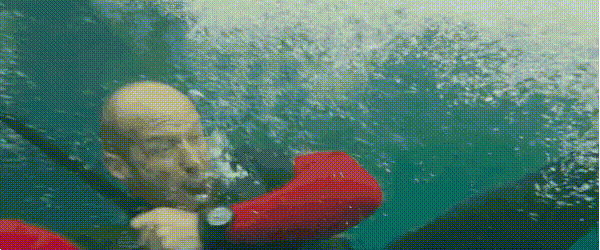
Mononym Mythology is a newsletter about mostly pop divas and their (visual) antics. It’s totally free, but if you got something out of this instalment, consider buying me a coffee. The best way to support my work otherwise is by sharing it. You can subscribe here, and you can also find me on Twitter and Instagram.
